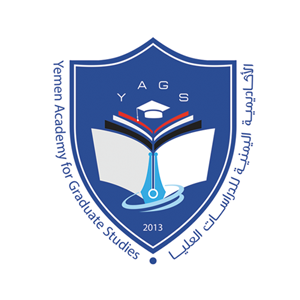ملامح الحوكمة الإدارية الرشيدة في نهج البلاغة للإمام علي رضي الله عنه - دراسة تحليلية
الكلمات المفتاحية:
نهج البلاغة، الحوكمة الرشيدة، الحوكمة الإدارية، الإدارةالملخص
هدفت هذه الدراسة إلى بيان معالم الحكم الرشيد أو الحوكمة الإدارية الرشيدة في الفكر السياسي الإسلامي من خلال دراسة فكر الإمام علي بن أبي طالب رضي الله عنه والموضح في كتاب "نهج البلاغة"، خصوصاً العهد الذي سلمه إلى مالك ابن الحارث النخعي المذحجي الملقب بـ(الأشتر) لما ولاه مصر وأعمالها بعد اضطراب الوضع فيها على محمد بن أبي بكر.
وقد درست نصوص العهد دراسة تحليلية تبين أسس الحوكمة الإدارية الرشيدة ومبادئها فيما تحتويه هذه النصوص من أسس ومبادئ وأحكام ووصايا ومعايير، صدرت عن تجربة الإمام علي كرجل دولة يقف على قمة الهرم السياسي والإداري للسلطة آنذاك، ويسعى إلى إقامة حكم رشيد في ظروفٍ استثنائيةٍ بالغة التعقيد كالتي يعيشها العالم العربي والإسلامي اليوم والذي يعتبر في أمس الحاجة إلى الحوكمة الرشيدة.
ووقفت كذلك على بعض الأدبيات المعاصرة التي تناولت الحوكمة الإدارية الرشيدة، ووازنت بينها وبين نصوص العهد في نهج البلاغة، فرأيت أنها لا تختلف كثيراً عما جاء في هذه الأدبيات. بل، وتجاوز العهد هذه الأدبيات الحديثة في كثير من الأحيان؛ لاشتماله على أسس ومبادئ تعد أصلاً من الأصول التي تقوم عليها الحوكمة الإدارية الرشيدة للأنظمة السياسية والحكومات في العالم اليوم.
وقد استخدمت هذه الدراسة المنهج التحليلي المقارن، بمقارنة نصوص نهج البلاغة وعهد الإمام علي لمالك وما تطرحه أدبيات الحوكمة الرشيدة والحكم الرشيد في الوقت الحاضر. وخرجت الدراسة بعدة نتائج أهمها أن في تراثنا الإسلامي السياسي كثيراً من المفاهيم والمصطلحات التي إذا ما درست بعمق وطبقت بصورة سليمة، حلت لنا الكثير من المشكلات السياسية والإدارية. كما استخلصت الدراسة كثيراً من المبادئ والأسس والقواعد التي تنظم العلاقات الإدارية بين الحاكم والمحكوم على مستوى السلطة العليا (الرئيس والمرؤوس)، وعلى مستوى المؤسسات الوسطية والدنيا في مختلف المجالات السياسية والاقتصادية والاجتماعية والتنموية الدائمة التي تتحقق فيها المساواة ويسود فيها العدل والكرامة الإنسانية للإنسان بصفته العامة، والتنمية المستدامة في جميع جوانب الحياة. وهذه الأسس المبادئ هي التي أكد عليها الإمام علي في عهده لمالك الأشتر وأهمها: الشفافية، وحسن الظن بالرؤساء والمرؤوسين، وإشاعة الحرية السياسية والاقتصادية، والعدالة والمساواة وتكافؤ الفرص، والقضاء على الفساد المالي والإداري وحفظ المال العام وغيرها.
وتوصي هذه الدراسة بإعادة دراسة التراث السياسي الإسلامي دراسة منصفة تستخلص الأسس والمبادئ اللازمة لإقامة حكم رشيد في الوطن العربي، يؤسس لنظام سياسي إسلامي شامل يعكس روح الإسلام ونصوص القرآن الكريم والسنة النبوية وهذا العهد وغيره، بعيداً عن التجارب السياسية الإسلامية التي عززت الشحناء والبغضاء بين المسلمين.
التنزيلات
التنزيلات
منشور
إصدار
القسم
الرخصة

هذا العمل مرخص بموجب Creative Commons Attribution 4.0 International License.
:حقوق الطبع والنشر والترخيص
يحتفظ الباحثون بحقوق النشر. ويتم ترخيص البحوث بموجب ترخيص Creative Commons CC BY 4.0 المفتوح، مما يعني أنه يجوز لأي شخص تنزيل البحث وقراءته مجانًا. وإعادة استخدام البحث واقتباسه شريطة أن يتم الإشارة إلى المصدر الأصلي. تتيح هذه الشروط الاستخدام الأقصى لعمل الباحث وعرضه.

